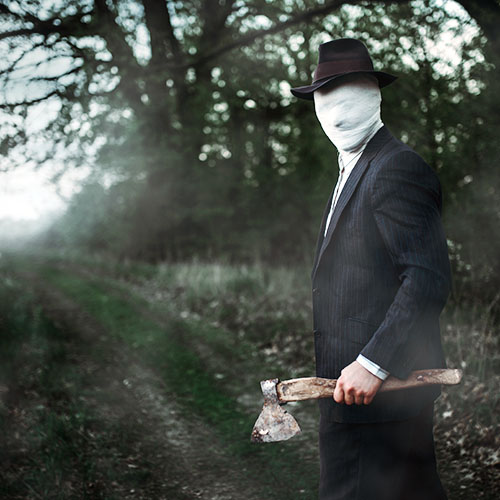One of the most common questions that adults have about their sexuality is “Am I normal?”
Who Wants “Normal” Sex?
Most people have varying degrees of anxiety about whether their sexual thoughts, feelings, or activities are in any way unusual.
In recent years there has been a great deal published about adult female and male sexuality. As a result, men and women have had access to information that has let them know they are no longer alone or different.
Until now, teenagers have not had a similar avenue to which they could turn for information. Yet many of their concerns echo those of the adult population. This study on teenage sexual intercourse, excerpted from Teenage Sexuality (Macmillan), will, it is hoped, provide them with a reference point. Taken from over 600 interviews, it will help give teenagers a clearer idea of what other people their age really think and feel about the act of making love.
Age of first experience
Historically, there has been a steady decline in the age at which teenagers have experienced sexual intercourse for the first time. In the late 1940s and early 1950s, Kinsey reported that 3 percent of the women and 10 percent of the men in his survey had lost their virginity by the age of 16. By the age of 19, those figures were 20 percent for females and 72 percent for males. In 1973 Sorenson reported that 30 percent of the females and 44 percent of the males who were interviewed in his sample had engaged in sexual intercourse before the age of 16.
Teenagers who participated in this youth survey were asked, ”How old were you (if ever) when you had sexual intercourse for the first time?”
- Fifty-seven percent of the younger boys, ages 15-16, and 44 percent of the older boys, ages 17-18, had never experienced sexual intercourse.
- Forty-three percent of the younger group of boys had sexual intercourse by the age of 16 and 18 percent by the age of 13.
- Forty-two percent of the older group of boys had sexual intercourse by the age of 16 and 7 percent by the age of 13.
- Sixty-nine percent of the younger girls, ages 15-16, and 56 percent of the older girls, ages 17-18, had never experienced sexual intercourse.
- Thirty-one percent of the younger group of girls had sexual intercourse by the age of 16 and 7 percent by the age of 13.
- Forty-one percent of the older group of girls had sexual intercourse by the age of 16 and 3 percent by the age of 13.
How many different partners have they had?
All of the teenagers were asked, ”If you have ever had sexual intercourse, about how many people have you had sexual intercourse with?”
- Twenty-three percent of the younger group of male non-virgins, ages 15-16, had experienced sexual intercourse with one partner.
- Nineteen percent of the older group of male non-virgins, ages 17-18, had experienced sexual intercourse with one partner.
- Forty-one percent of the younger group of female non-virgins, ages 15-16, had experienced sexual intercourse with one partner.
- Fifty-two percent of the older group of female non-virgins, ages 17-18, had experienced sexual intercourse with one partner.
- Fifty-four percent of the younger group of boys who were non-virgins had experienced sexual intercourse with fewer than six partners.
- Sixty percent of the older group of boys who were non-virgins had experienced sexual intercourse with fewer than six partners.
- Eighty-five percent of the younger group of girls who were non-virgins had experienced sexual intercourse with fewer than six partners.
- Eighty-three percent of the older group of girls who were non-virgins had experienced sexual intercourse with fewer than six partners.
- Twenty-eight percent of the younger group of boys and 19 percent of the older group of boys who were non-virgins had experienced sexual intercourse with more than ten different partners.
- Seven percent of the younger group of girls and 5 percent of the older group of girls who were non-virgins had experienced sexual intercourse with more than ten different partners.
Expectations of how it would be
One’s first intercourse experience is a significant event for most. A wide range of anticipatory thoughts and feelings is reflected in the reports of the teenagers who participated in this survey. They are important because they may indeed serve as self-fulfilling prophecies and, thus, greatly affect the initial experience. If the teenager believes it will be beautiful, it may indeed increase the chances of its being that way. If he or she is anxious about the pain, the individual will be more tense and, therefore, will increase the potential for a negative experience. Or if the person has totally unrealistic expectations, sex may be disappointing or, possibly, pleasantly surprising.
All of the teenagers were asked, ”Before you ever had sexual intercourse, what did you think it would be like when you did?” or ”If you have never had sexual intercourse, what do you think it will be like when you do?”
(15-year-old girl) “Well, I know it will hurt the first time because all my friends have had sexual intercourse. But I think it will be beautiful, loving, meaningful, the most natural thing you can ever do. It will be a sharing of oneself with someone you really care about. It will be very romantic and will leave me with very great pride, warmth, and fulfillment. It will be something I would never want to forget.”
(16-year-old girl) “I’m holding out until I’m really sure I can handle it emotionally. I’m sure it will be a beautiful experience even if everything doesn’t work out just right because I would only do it with someone I am totally in love with and could understand the difficulties of the first time. I think it will hurt the first time but not so much, because it will be with someone I really love.”
(17-year-old boy) “I’d had orgasms before, but I’d heard that a vagina was very hot and tight. I thought it would be great, although I was a little scared as to my performance.”
(18-year-old boy) “It will probably be very warm and wet inside her vagina. It will probably feel like masturbating but even more stimulating and climactic.”
(17-year-old boy) “I wasn’t sure how it would feel when I put my penis in. The first time I was so excited I was shaking. I was disappointed because it was over so quickly. I thought I was going to have a heart attack I was so nervous.”
(16-year-old boy) “If the girl is a virgin, it will probably be uncomfortable for both of us. But if she is not a virgin, I imagine I’ll like it fine. It will probably be the same sensation for my penis as it is to masturbate in the sheets. But it will be a fuller experience with our whole bodies together in a bond of love. I think holding each other in the foreplay and during the intercourse and after will be just as pleasurable as the actual penetration.”
(15-year-old boy) “I really don’t know what to expect. I have heard that it is like no other sensation and is more pleasurable than anything. I hope, of course, this is true. I think that it will probably be a sensation similar to a wet dream, yet much more intense and pleasurable.”
(17-year-old girl) “I thought it would be more like masturbating – just total pleasure. But it was weird because I felt so close to my boyfriend and I wanted to please both of us.”
Attitudes about having lost one’s virginity
The loss of virginity is, for most teenagers, a significant psychological event. The importance of the event does not lie simply in the physical act of sexual intercourse. The range and intensity of emotions reflect the effects on self-image that are generated by the experience.
I asked all of the adolescents, ”If you have already had sexual intercourse, what were your feelings about losing your Virginity?”
In general, boys reported positive feelings associated with losing their virginity. While many girls also reported positive reactions, they were more likely to evidence conflictual or sometimes negative feelings as well.
One of the most common feelings was an enhanced maturity. Boys most often responded that they were proud and had experienced a sense of accomplishment. They felt more like men. Girls also felt older and more adult, although they did not as often have a corresponding enhanced feeling of being a woman. Evidently there are other events that are more important to their image of themselves as women.
(16-year-old boy) “It was like I had become a man, and I wanted to tell everyone about it.”
(18-year-old boy) “Proud. Now I could tell the truth if someone asked me if I had ever had intercourse.”
(18-year-old boy) “I felt very relaxed, drained of all worries and cares. I was proud. A little warm all over. I really enjoyed myself. I felt I’d never be the same again. I had taken a step on my way to manhood.”
(17-year-old girl) “I felt older, more mature, too, and able to understand more about guys and their attitudes and behavior.”
(15-year-old girl) “I thought, Wow, I did that? I did what all the adults are talking about? And then I thought, Why do I have to keep this a secret from them?”
(18-year-old girl) “Different. All of a sudden I felt experienced.”
One indication of the meaningfulness of the event for many teenagers (especially girls) was their desire to have sexual intercourse for the first time with someone they loved or cared about a great deal. Disappointment or guilt was reported when this was not the case.
(17-year-old girl) “In my ideas about premarital sex, I made a resolution to myself that I would not get very physically involved with someone whom I didn’t love. With that in mind, when I first had sexual intercourse, I was in love and it was very emotionally and physically satisfying.”
(17-year-old girl) “I was in love with the guy I lost my virginity to; so I wasn’t upset about it. I think if I hadn’t cared about the guy so much, I would have regretted it. Also, my best friend at the time lost her virginity around the same time I did; so it seemed right to me.”
(16-year-old girl) “At the time I hadn’t really taken sex seriously. I think that I was mainly curious to see what sex was like. As a result, I lost my virginity to a guy I didn’t like all that much, and now I sort of regret it. Having sex for the first time should be something special.”
Boys, more than girls, felt the pressure to meet the standards of their peers. Losing their virginity would enable them to feel comparable.
(15-year-old boy) “I wanted to Jose it fast because supposedly all my friends had already lost theirs.”
(17-year-old boy) “It was a great feeling. There is a definite pressure to get laid before you get out of high school. Fucking for the first time relieved that pressure that I was feeling and allowed me to have a better relationship with girls.”
(15-year-old boy) “I was anxious to do it. I guess a lot of people were lying to build up their ego. But they were always saying how great it was, and I wanted to be part of the crowd.”
(16-year-old girl) “I guess I just figured I had to lose it sometime. All my friends were putting me down before; so there was pressure.”
Some adolescents were simply relieved and glad it was over with.
(15-year-old boy) “I was always hoping I would lose my virginity at an early age.”
(16-year-old boy) “I felt it should be done already. It was something you were supposed to do. So I felt relieved and more of a man.”
(16-year-old girl) “It was funny, because just beforehand the word virginity was so powerful to me. I did not regret the loss of my virginity at all. In fact, I was glad it was over with.”
(17-year-old girl) “I was glad I finally knew what it felt like. I had wanted to experience it for a long time.”
Reflecting greater inner and social conflicts, girls were much more likely to report having mixed emotions about the experience. It feels good, but it’s wrong. Girls aren’t supposed to have sex, but so many do. What will they think of me if I do? What will they think of me if I don’t?
(17-year-old girl) “I felt bad. Usually when I’m with my boyfriend, I have two thoughts about having sex. One is: Don’t do it you’re too young. And the other is: Why not? It will feel good. When I did it, I was thinking of the second one. But after, I felt I shouldn’t have done it, because I didn’t really love him.”
(18-year-old girl) “Mixed. I want men to love me for myself. I was quite relieved in a sense, because it’s something I anticipated for a long time. I felt loved, because I knew my boyfriend loved me. I also felt scared, because I thought I would be different, act different, and look different. When I got home that night, I remember looking carefully at myself in the mirror. I looked the same and felt very good!”
(17-year-old girl) “At first I felt disgusted with myself. I felt like I was the only girl who had ever had intercourse at sixteen. I felt kind of cheap and slutty. But a day or so later, I felt that I had no reason to be disgusted, that it is a human instinct. And besides, we loved each other; so it wasn’t sex: it was love.”
For some teenagers, it was “no big deal.” There were no feelings of loss and very little thought afterward about the experience.
(16-year-old boy) “I didn’t even think about losing my virginity. I mean, why would it matter? I could see how it would matter if I was a girl. It’s more intense for girls to lose their virginity, because they bleed and it hurts them. Also, some girls think that they want to be virgins until they get married; so it’s a more emotional decision for them.”
(16-year-old boy) “I thought it would make my voice deeper or make me more macho or something after it happened. I still walked the same way, and I realized that it wasn’t such a big deal. Just another way of getting pleasure.”
(15-year-old girl) “No big deal. I never really thought about it that much. I don’t really know why some girls think it’s such a big thing. I mean, it’s just part of life.”
Some teenagers were disappointed by the experience. It was not so pleasurable as they imagined it would be. Perhaps it was disappointing because of unrealistically high expectations, or because their inexperience interfered with their deriving maximum pleasure from the activity. For some girls, pain was the overriding sensation.
(18-year-old boy) “Kind of cheated. It didn’t live up to my fantasies. It wasn’t as great as I expected.”
(17-year-old boy) “I was happy and relieved that I had finally done it. But sort of depressed in that it was not all it was cracked up to be.”
(16-year-old boy) “Discouraged and happy. Discouraged because it really wasn’t what everybody said it was. Happy, though, because. I had accomplished it.”
(16-year-old girl) “It wasn’t what I expected. It was painful, and the guy didn’t seem to care about how I was feeling. I was scared my father would come home and relieved when it was over. I wanted the guy to hold me. I just wanted to be close to him and feel cared for.”
(16-year-old girl) “Sore.”
How did they learn?
The range and intensity of emotions associated with one’s first sexual encounter are apparent. Some of those feelings, in all likelihood, were influenced by how comfortable or pleasurable the experience was for the individual. The degree of comfort or pleasure derived may, in turn, have been affected by how successful the person was in managing or performing the act itself.
Because it is one’s first encounter with this particular sexual activity, its “success” takes on wider proportions. If it is experienced as unpleasurable, the individual may avoid it and be under the misconception that the act of sexual intercourse is Unpleasant. In addition, for many individuals sexual intercourse is equated with “mature” sex. If one thinks, therefore, that his or her initial attempt was a failure in some way, this view may negatively color the person’s self-image as a man or a woman.
Adolescents receive little, if any, prior instruction about sexual intercourse. Yet their anticipatory anxiety causes them to seek information. I asked teenagers, “If you have ever had sexual intercourse, how did you learn how to do it?”
Many teenagers were helped by feedback or instruction from their partners.
(17-year-old girl) “My boyfriend and I learned together just by helping each other to learn what the other needed and wanted.”
(15-year-old girl) “The man I was with showed me.”
(17-year-old girl) “The guy was very experienced, and I picked up on his lead.”
(17-year-old boy) “My partner and I just learned from each other.”
(17-year-old boy) “The girl I was with helped me a lot. The books and movies just didn’t make it. I was glad that I was with a girl who was experienced and comfortable enough with me to help.”
(18-year-old boy) “I was having a heavy petting session with a girl I liked, and she asked me to make love to her. I said I didn’t know how; so she showed me.”Some teenagers braved the awkwardness and simply relied on experience.
(16-year-old boy) “Just by trial and error.”
(17-year-old boy) “I just did what I thought was right.”
(15-year-old boy) “My partner was a virgin; so I wasn’t worried too much. I knew where the hole was, and I felt around until I could find it. Everything else just came naturally.”
(17-year-old boy) “I really didn’t know how. I knew where to put it, but I didn’t know how to go about it. I was confused about what a girl was like down there.”
(16-year-old girl) “By experience and experimenting.”
(17-year-old girl) “I knew it all came naturally; so I didn’t worry about it. But I know more now than when I first did it, just from trying different things.”
(18-year-old girl) “By experience with different guys. Talking to my friends about it helped a little. But mostly just by doing it.”
Some teenagers reported talking to friends or siblings. However, those talks are often lighthearted or vague.
(16-year-old boy) “I hung around with older guys, and they joked about it. There are probably a lot of things I do wrong that I don’t know about. I still don’t feel that I really know what I’m doing.”
(16-year-old boy) “My older brother talked to me about it, but it was pretty general, and I don’t think I had a very clear idea of what it was all about.”
Magazines, books, and, for a few boys, pornographic movies provided a source of information to teenagers.
(17-year-old boy) “I saw it done in some stag films, but it was pretty gross.”
(18-year-old boy) “The basic way: by word of mouth. We kid around about it in the gym. Sometimes the topic will come up, and you compare notes.”
(16-year-old girl) “I read some books that described it.”
A large number of adolescents mentioned “instinct” or reported that “it just came naturally.”
(17-year-old girl) “It isn’t something you learn. It is something you feel so naturally that it happens without really thinking how to do it.”
(17-year-old girl) “It’s natural. It just happens. One person takes the initiative, usually, as to whether to move or stay still, to lie down or stand up. You just move with the other person. Your bodies become very self-sufficient. They start moving and pulsating without thought.”
(17-year-old boy) “I just did what came naturally.”
Significant gender differences emerged from reports by girls and boys about sexual intercourse. Because of greater social constraints on the expression of their sexuality, females felt a need for a greater emotional commitment before proceeding to intercourse; engaged in that activity more discriminately (i.e., with fewer partners); and, because of greater conflict, derived less pleasure from the act itself. Boys, on the other hand, labored under intensified performance anxieties in fulfilling their assumed role of “leading the way.” In addition, fewer social restraints on males generate more direct, less ambiguous pressures from peers to be sexually active and assert one’s manliness.
Adolescents would benefit from sex education dealing with the “mechanics” of sexual intercourse. Instruction would relieve anticipatory anxiety, enable the individual to derive greater pleasure from the act, and, perhaps, instill more realistic expectations. However, in addition to learning the how-tos, teenagers should have an opportunity to discuss the meaning for them of this obviously significant event.
Excerpted by permission of Macmillan Publishing Co., Inc. From Teenage Sexuality by Dr. Aaron Hass. Copyright © 1979 by Aaron Hass
























